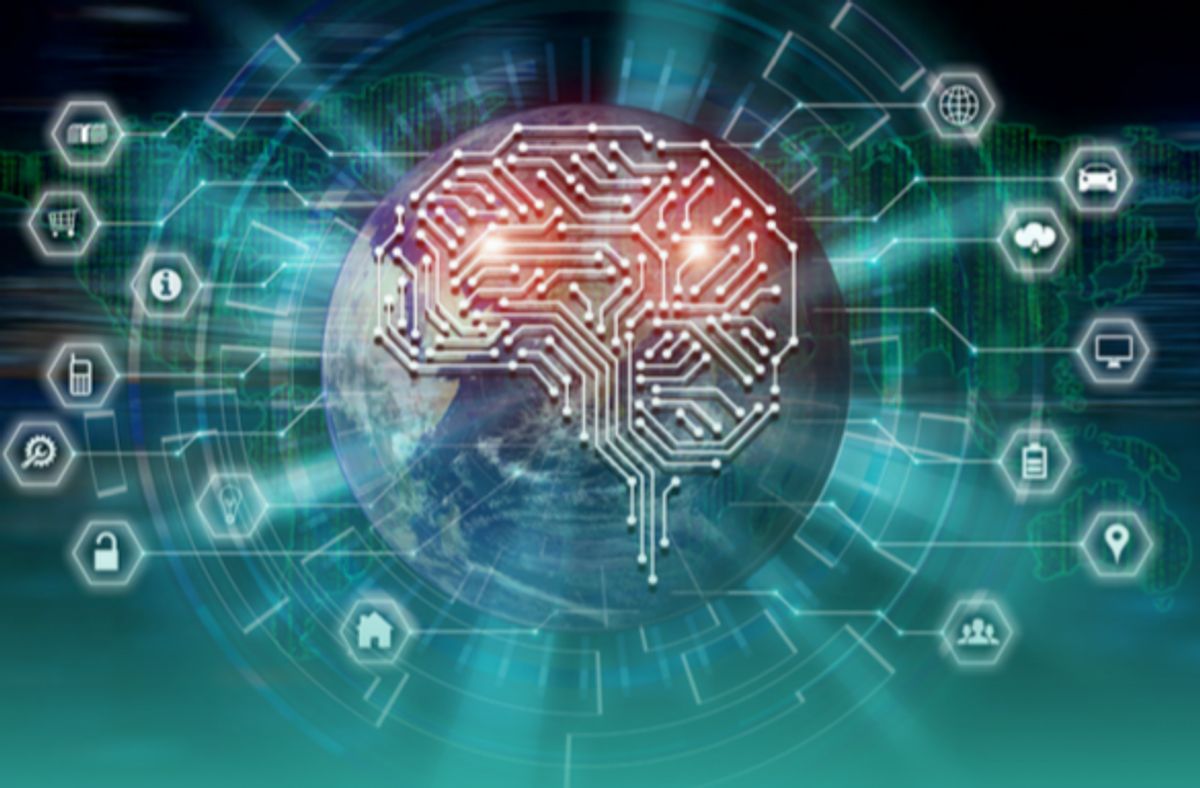AI technology is revolutionizing the healthcare industry by enhancing diagnostic services, personalizing patient care, and streamlining healthcare delivery. This article delves into the transformative role of AI, exploring its applications in diagnostics, treatment planning, and administrative efficiency, while also considering the ethical and regulatory challenges it presents. As we look to the future, the integration of AI with genomics, wearable devices, and real-time monitoring signals a new era of innovation in healthcare.
Key Takeaways
- AI is significantly improving diagnostic accuracy and enabling personalized medicine through genomics and patient-specific data analysis.
- Healthcare delivery is being optimized by AI, which streamlines administrative tasks and enhances disease management and virtual patient support.
- The adoption of AI in healthcare poses ethical and regulatory challenges that require transparency, accountability, and robust data security measures.
- Emerging trends in AI, such as wearable technology integration and telemedicine, are setting the stage for future healthcare innovations.
- Collaboration across stakeholders and a focus on ethical considerations are essential for harnessing AI's potential to improve patient outcomes and healthcare practices.
AI-Driven Diagnostic Excellence and Personalized Medicine

Enhancing Diagnostic Accuracy with AI
The integration of AI into diagnostic services marks a significant leap forward in healthcare. AI-powered tools are enhancing the precision of medical imaging, such as X-rays, MRIs, and CT scans, by analyzing vast datasets to detect diseases with remarkable accuracy. In radiology, for example, AI algorithms have been instrumental in identifying early signs of cancer and other conditions, leading to quicker diagnoses and improved patient outcomes.
AI-driven pathology and histology tools are revolutionizing the analysis of tissue samples, providing faster and more accurate diagnostic insights, which are critical for effective treatment planning.
The impact of AI on diagnostic accuracy is not just theoretical; it's measurable. Here's a glimpse of the improvements observed:
- Reduction in diagnostic errors: AI algorithms help reduce human error by providing a second, unbiased review of imaging data.
- Speed of diagnosis: AI can process and analyze medical images much faster than human radiologists, leading to quicker diagnosis.
- Accessibility of diagnostic services: AI can help in remote areas where there's a shortage of specialists, making diagnostic services more accessible.
The promise of AI in enhancing diagnostic accuracy is immense, offering a pathway to more personalized and timely patient care. As AI continues to evolve, its role in healthcare is set to become even more pivotal, ensuring that patients receive the right diagnosis at the right time.
Tailoring Treatments to Individual Patient Profiles
The advent of AI in healthcare has ushered in a new era of personalized treatment and care. AI algorithms are now capable of analyzing a multitude of patient-specific data points, from demographics to genetic markers, to devise treatment plans that are uniquely suited to each individual's needs. This level of customization not only enhances the efficacy of treatments but also minimizes the risk of side effects and unnecessary procedures.
The integration of AI into treatment planning allows for a nuanced approach that accounts for the complex interplay of factors unique to each patient.
Healthcare providers are increasingly relying on AI-driven decision support systems. These systems offer valuable assistance in medication management and disease management, contributing to a more streamlined and patient-focused healthcare experience. In particular, AI's role in radiology and pathology has been transformative, with algorithms detecting early signs of diseases and analyzing tissue samples with unprecedented speed and accuracy.
The pharmaceutical industry is also embracing AI to expedite drug development and identify patient subgroups that would benefit most from specific treatments. This not only accelerates the path to market for new drugs but also ensures that therapies are more precisely targeted, improving overall treatment success rates.
The Role of Genomics and AI in Personalized Care
The integration of genomics and AI is paving the way for a new era in healthcare, where treatments are not just effective but are tailored to the genetic makeup of the individual. AI algorithms can analyze vast amounts of genomic data, uncover genetic indicators of diseases, and provide tailored interventions based on an individual's unique profile. This personalized approach not only improves treatment outcomes but also reduces the risk of adverse reactions and unnecessary interventions.
The synergy between genomics and AI signifies a transformative leap in patient care, enabling healthcare providers to predict, prevent, and treat diseases with unprecedented precision.
Healthcare providers are increasingly adopting AI-driven decision support systems to assist in treatment planning, medication management, and disease management. This leads to more efficient and patient-centered care, exemplifying the potential of AI in revolutionizing healthcare delivery. Looking ahead, the future of AI in healthcare holds immense promise, with trends such as real-time health monitoring and wearable devices further enhancing the personalization of care.
Optimizing Healthcare Delivery Through AI

Streamlining Administrative Processes
The integration of AI into healthcare administration is revolutionizing the way hospitals and clinics operate. By automating routine tasks such as scheduling, billing, and medical record keeping, AI-driven solutions are enhancing efficiency and accuracy. This not only reduces the administrative load on staff but also allows them to focus on more critical patient care tasks.
AI-driven administrative automation is a game-changer, enabling healthcare facilities to optimize their operations and provide better patient support.
Here's how AI is making a difference in administrative processes:
- Automating repetitive tasks to minimize human error and free up staff time.
- Streamlining workflows to improve overall efficiency in healthcare settings.
- Enhancing data management with better organization and accessibility of medical records.
The impact of these changes is significant, leading to a more responsive and patient-centric healthcare system.
AI in Disease Management and Treatment Planning
The integration of AI into disease management and treatment planning is transforming patient care. AI-driven decision support systems are now pivotal in assisting healthcare providers with medication management and disease management. This leads to more efficient and patient-centered care, optimizing treatment outcomes while minimizing risks and unnecessary interventions.
AI's ability to analyze patient data, including demographics, medical history, genetic information, and lifestyle factors, enables the personalization of treatment plans. Such tailored regimens are proving to be more effective for individual patients, marking a significant shift towards personalized healthcare.
In the realm of diagnostics, AI's impact is equally profound. Machine learning algorithms enhance the precision of medical imaging, such as X-rays and MRIs, allowing for early detection of conditions like cancer. This not only accelerates diagnosis but also improves the overall patient journey.
The potential role of artificial intelligence in the clinical management of diseases is not just theoretical. It is a reality that is reshaping therapeutic strategies and classifying cases with a level of accuracy previously unattainable.
The Emergence of Virtual Health Assistants
The healthcare industry is undergoing a significant transformation with the introduction of AI-powered virtual health assistants. These innovative tools are not only changing the way patients interact with healthcare systems but are also enhancing the quality of care provided. Virtual health assistants utilize advanced technologies such as natural language processing and machine learning to comprehend patient inquiries, dispense medical advice, schedule appointments, and aid in medication management.
Virtual health assistants are pivotal in improving patient engagement and healthcare outcomes while simultaneously alleviating the workload on medical facilities.
These assistants are particularly beneficial in areas with limited access to traditional healthcare services, offering a lifeline to patients in rural or underserved regions. The promise of AI in healthcare suggests a future where these applications become even more reliable and integral to patient care.
While the potential of virtual health assistants is vast, it is essential to ensure that their deployment in healthcare settings is done responsibly, with a focus on maintaining high-quality patient care and support.
Ethical and Regulatory Challenges in AI Adoption

Ensuring Transparency and Accountability
In the rapidly evolving landscape of AI in healthcare, ensuring transparency and accountability is paramount. Healthcare organizations must prioritize these values in the development and deployment of AI-driven solutions to build trust with patients and stakeholders.
To address these imperatives, the concept of 'nutrition labels' for AI has been proposed. Similar to food nutrition labels, these would provide essential information about the AI's decision-making process, data sources, and performance metrics, allowing health professionals to make informed decisions.
The adoption of AI in healthcare necessitates a clear framework for transparency and accountability, which includes the establishment of standards and best practices for AI systems.
Collaboration across the healthcare ecosystem is essential to unlock the transformative power of AI while maintaining ethical standards and regulatory compliance.
Addressing Privacy and Data Security Concerns
The integration of AI into healthcare necessitates stringent measures to protect patient privacy and secure sensitive data. Healthcare organizations must prioritize transparency and accountability to foster trust and ensure the ethical use of AI technologies.
Key strategies include:
- Establishing robust regulatory frameworks
- Implementing industry standards
- Ensuring fairness in AI-driven solutions
The potential of AI to revolutionize healthcare comes with the responsibility to safeguard patient information and uphold data integrity.
While AI can streamline administrative work and enhance patient care, it is crucial to address the risks associated with data privacy. Organizations should continuously evaluate and update their security protocols to prevent breaches and unauthorized access to personal health information.
Navigating the Complex Landscape of AI Regulation
The integration of AI into healthcare is not just a technological challenge but also a regulatory one. Regulatory frameworks must evolve to keep pace with the rapid advancements in AI, ensuring that these technologies are used responsibly and ethically. The complexity of AI regulation stems from the need to balance innovation with patient safety, privacy, and the equitable distribution of healthcare benefits.
- Establishing clear guidelines for data usage and patient consent
- Defining standards for algorithmic transparency and explainability
- Creating mechanisms for ongoing monitoring and evaluation of AI systems
The goal is to foster an environment where AI can thrive while safeguarding the rights and well-being of patients.
Healthcare stakeholders, including policymakers, technologists, and patient advocates, must collaborate to navigate this intricate regulatory landscape. This collaboration is essential for developing regulations that not only protect patients but also encourage the responsible advancement of AI in healthcare.
The Future of AI in Healthcare: Trends and Innovations

Integrating Wearable Devices and Real-Time Monitoring
The integration of wearable devices and real-time monitoring into healthcare represents a significant leap forward in patient care. These technologies enable continuous tracking of vital signs and health metrics, providing a wealth of data that can be analyzed by AI systems for early detection of potential health issues.
Wearable technology has evolved rapidly, with devices ranging from smartwatches to advanced textiles capable of monitoring a variety of physiological parameters. This has opened up new possibilities for proactive health management and personalized care. For instance, an Apple Watch can now detect irregular heart rhythms, while smart textiles can monitor body temperature and hydration levels.
The benefits of this integration are clear: enhanced patient engagement, improved disease management, and more timely interventions. However, it also presents challenges, particularly in the realm of data management and privacy. Ensuring the security of sensitive health data and maintaining patient trust are paramount as we navigate this new landscape.
The convergence of AI, wearable technology, and real-time health monitoring is setting the stage for a healthcare revolution, where patient support is not just reactive, but predictive and preventive.
The Convergence of AI and Telemedicine
The fusion of AI and telemedicine is setting the stage for a new era in healthcare delivery. Telemedicine, powered by AI, is enabling real-time patient monitoring and care, irrespective of geographical barriers. This synergy is not only enhancing the accessibility of healthcare services but also ensuring that patients receive timely and more accurate diagnoses and treatments.
- Remote Patient Monitoring: AI algorithms analyze data from wearable devices, providing insights into patient health trends.
- Virtual Consultations: AI assists in interpreting symptoms and guiding treatment plans during online consultations.
- Predictive Analytics: AI predicts potential health issues, allowing for preemptive care.
The integration of AI with telemedicine is transforming the patient experience by offering convenience, reducing the need for physical visits, and personalizing care to an unprecedented level.
As this convergence progresses, it is imperative to maintain a focus on patient privacy and data security, ensuring that the benefits of AI-enhanced telemedicine are realized without compromising ethical standards.
Emerging AI Applications in Surgical Robotics and Nanomedicine
The integration of AI into surgical robotics is transforming the precision and efficiency of surgeries. Robotic systems enhanced by AI are now capable of performing complex procedures with minimal invasiveness and reduced recovery times. These advancements are not only improving surgical outcomes but also minimizing the risks associated with human error.
In the realm of nanomedicine, AI is driving the development of highly targeted drug delivery systems and novel therapeutic agents. By leveraging the power of machine learning, researchers are able to design nanoparticles that can navigate the body more effectively, delivering medication directly to diseased cells while sparing healthy ones.
The synergy between AI and nanotechnology is paving the way for breakthroughs in treating conditions that were once considered intractable. This collaboration holds the potential to redefine the boundaries of medicine, offering hope for personalized and more effective treatments.
The following table highlights key areas of impact:
Conclusion
As we stand on the brink of a new era in healthcare, the integration of AI technologies has already begun to forge a path toward a more efficient, personalized, and outcome-focused medical landscape. The transformative impact of AI on patient care and support is evident in the enhanced diagnostic capabilities, tailored treatment plans, and the automation of administrative tasks, all of which contribute to a more patient-centric approach. While the potential of AI in healthcare is immense, it is imperative that we navigate the ethical and regulatory challenges with diligence and foresight. By fostering a collaborative environment among healthcare professionals, technologists, and policymakers, we can ensure that AI serves as a benevolent force in healthcare, improving the lives of patients and setting a new standard for medical excellence. The future of healthcare, augmented by AI, promises not only to revolutionize patient care but also to create a more equitable and accessible health system for all.
Frequently Asked Questions
How is AI enhancing diagnostic accuracy in healthcare?
AI algorithms are being utilized in radiology to identify early signs of diseases such as cancer, as well as in pathology and histology to automate tissue sample analysis, leading to quicker, more accurate diagnoses and better patient outcomes.
In what ways does AI contribute to personalized medicine?
AI analyzes patient demographics, medical history, genetic information, and lifestyle factors to tailor treatment regimens that are most effective for each individual, improving treatment outcomes and reducing the risk of adverse reactions.
What role does AI play in healthcare delivery optimization?
AI streamlines administrative processes, supports treatment planning and medication management, and introduces virtual health assistants, freeing up healthcare providers to focus more on direct patient care.
What are the ethical considerations of using AI in healthcare?
Ethical considerations include ensuring transparency and accountability in AI systems, addressing privacy and data security concerns, and prioritizing fairness in the development and deployment of AI-driven solutions.
How will AI shape the future of healthcare?
The future of AI in healthcare includes integrating genomics data, wearable devices, real-time health monitoring, and advancements in surgical robotics and nanomedicine, all poised to revolutionize healthcare delivery.
What are the regulatory challenges for AI in healthcare?
Regulatory challenges involve navigating complex laws and guidelines to ensure AI applications are safe, effective, and compliant with healthcare standards while maintaining patient trust and protecting sensitive data.



